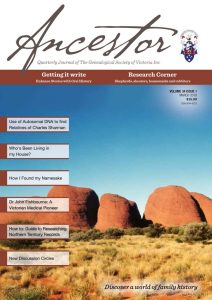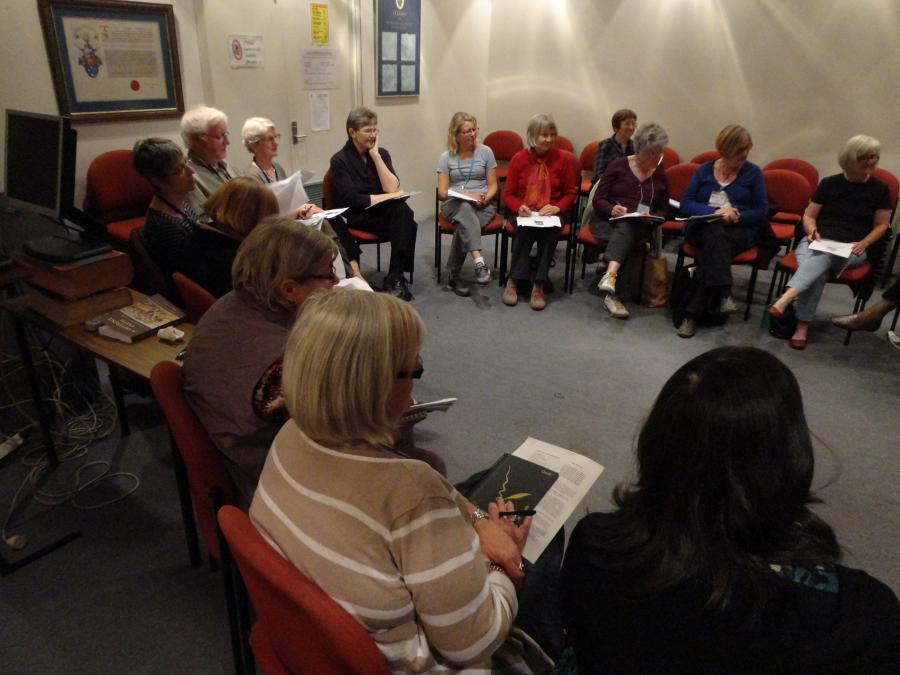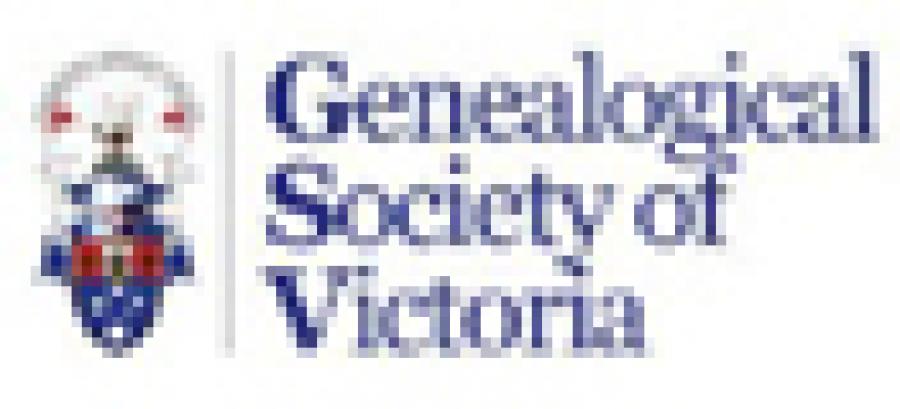Have I got my new Ancestor?
The GSV's Journal 'Ancestor' is now out for this quarter (March 2018, Vol.34:1). If you are a Member you have already got this Issue and you will be well into the interesting articles. Here is a brief look at what is in this new Ancestor. I would love to receive your comments to this blog, about this journal and its features (see 'Comments' button at end). You may even want to send me a follow-up article for possible future publication on this Blog.*** Bill Barlow, GSV Blog Editor. e: blog@gsv.org.au

'Use of Autosomal DNA to find Relatives of Charles William Sharman'. DNA testing helped Robyn Sharman Hawking to solve the long-standing problem of who were the parents of her great grandfather Charles William Sharman. It set her on a course that she would never have been able to follow without the test results.
If you would like to know more about DNA and its usefulness in genealogy, the GSV has introduced a new series of 'modules' - you might like to attend one or more of the modules that are being planned for this year. These will help you personally interpret the data that DNA testing companies send you after a swab test.
'Dr John Fishbourne: A Victorian Medical Pioneer'. Kaye Cole has researched her nineteenth century relative Dr John Fishbourne, a medical pioneer in improving the treatment and education of people with a range of conditions including intellectual disability and epilepsy.
'How I found my Namesake'. While searching for her namesake of three generations back, Elizabeth Kelly traced the McCallion family to Sydney and uncovered their mostly sad story.
'Who's Been Living in My House'. Louise Wilson takes us on a rather different journey, that of the history of her house in South Melbourne. This article provides an insight into the large amount of material available on residences.
Martin Playne’s 'A Guide to Researching Northern Territory Records' will give you some good ideas on where to look if you have Northern Territory ancestors. Few people realise that the Northern Territory came under so many jurisdictions at different periods.
In 'Research Corner', Michael Sturmfels has generously shared the results of his research into pastoral workers in the Western District Victoria between 1860 and 1880, for which he checked through a great variety of records. He shares some of the interesting stories, and has made his results available online at the GSV.
But there is more! Family history researchers are assisted each month with the writing of their story in 'Getting it Write'; about oral history in this issue. There are sections about blogging (with Meg Bate), book reviews, notes on additions to the GSV Library, as well as regular pages from the Public Record Office, and the Royal Historical Society of Victoria.
Remember that this is your journal, the place where you can share your family history. As well as our usual longer articles, we would like to invite you to submit a short article (around 250 words) and an image or two, focussing on a particular place of significance in your family history for our new back page space. In this issue in 'Tower Bridge' Barbara Beaumont recalls a family link to this famous London landmark.
***









 On May 25 -'Death and Dying in Australia' - Speaker: David Down. An examination of the history of death and dying in Australia as illustrated by the various memorials in the Fawkner and Coburg Cemeteries. Bookings are required. Members $5, non-members $20.
On May 25 -'Death and Dying in Australia' - Speaker: David Down. An examination of the history of death and dying in Australia as illustrated by the various memorials in the Fawkner and Coburg Cemeteries. Bookings are required. Members $5, non-members $20.